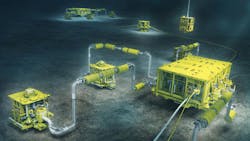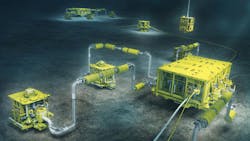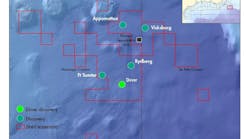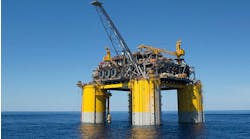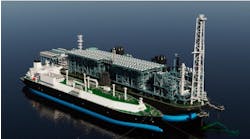The alarming number of deepwater project deferrals underlines the need for more cost controlling measures. Analytics firm Wood Mackenzie in a recent report finds the biggest jump in pre-FID delayed projects over the last six months was in deepwater, rising from 17 to 29, where costs have fallen by only about 10%. “Despite the size of these fields, the combination of insufficient cost deflation and significant upfront capital spend has discouraged companies from greenfield investment in the sector,” the firm says.
Wood Mackenzie has identified 68 large projects globally that had their FIDs delayed from the beginning of the downturn in 2014 through to the end of 2015. These delays amount to $380 billion of total project capex and 27 Bboe. Deepwater has been hit the hardest, accounting for 62% of total reserves and 56% of total capex deferred. Of this, 70% relates to oil-weighted projects, particularly in Angola, Nigeria, and the US Gulf of Mexico.
Meanwhile, a recent survey of senior industry professionals by DNV GL finds cost management as the top priority of the respondents. But, the industry is in danger of repeating the same mistakes from past downturns, warns Elisabeth Tørstad, CEO of DNV GL. “To prevent repeating past mistakes, real change is needed now - cutting complexity, increasing collaboration, and driving standardization. These measures will enable the industry to adjust to the new reality and put it on a sustainable growth path for the long term,” she says.
Collaboration, in particular, is rapidly appearing in every sector of the industry as a means of leveraging knowledge and resources to reduce costs. The January 2016 issue ofOffshore magazine suggested that a restructuring through collaboration was taking place in the oilfield services sector. Operators are partnering with service companies as well, particularly in the subsea space, to enhance the feasibility of deepwater projects.
A recent example is the Total and Aker Solutions signing of a four-year technical collaboration agreement to develop new “cost-effective” subsea technology.
The partnership is seeking to advance subsea processing and compression systems to boost the cost-efficiency of deepwater gas production, development of electric subsea controls, and optimization of flow measurement technologies.
The companies have worked together on the Kaombo and Dalia developments offshore Angola and Moho Nord offshore Congo-Brazzaville (pictured in the accompanying illustration courtesy of Aker Solutions). In addition, they have collaborated on subsea boosting solutions for deepwater application as part of Total’s deep offshore research and development program.
Innovation is another key enabler for reducing deepwater project costs. BP stated in its recent technology report, that “at a time of lower prices, revenues, and capital spending, digital technologies - including sensors, data analytics, and automated systems - stand out as the leading contributors for reducing costs.”
Offshore magazine invites you to share your ideas and solutions to advance the theme of unlocking deepwater value through collaboration and innovation at Deep Offshore Technology International 2016. Follow this link to submit your abstract: http://bit.ly/206T4NU.
David Paganie
